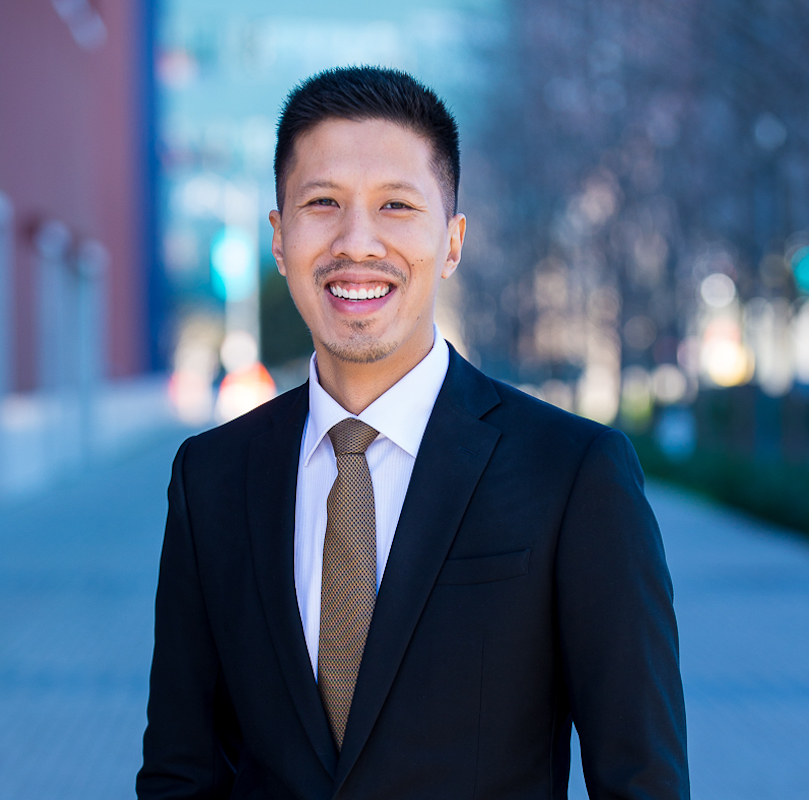What was your first job?
I started my career as an Environmental Scientist at a boutique environmental service company in Sydney. The company had only three employees (including myself) and it set my pathway of working in a small team throughout my career.
Over my time there, I strengthened my science-based knowledge and experience as I was involved with managing water quality and chemicals — something completely different from what I do today and far from impact investing.
When did you know you wanted to work in finance/business?
With an Engineering and Science background, I always love math and enjoy working with numbers. After my first job, I moved to Thailand and joined TEAM GROUP, Thailand’s largest consulting firm. I had the opportunity to work on new sustainability and infrastructure projects across Southeast Asia. That’s when I got into understanding how important finance is to make these projects feasible and become a reality. I also developed a strong interest in how finance could drive impact on business and society, especially in an international development context.
That was the moment I knew I wanted to incorporate both finance and business in my work to make sure that organizations generate expected financial return, while having deep social impact.
When did you first discover the concept of Impact Investing?
After my consulting experience, I entered the nonprofit sector working with Water.org, a global award-winning organization using finance to solve the world’s water and sanitation crisis. Water.org pioneered the concept of microfinance for grassroots water and sanitation needs and empowered communities to take charge of their own lives. This was when I was first exposed to the impact investing concept — it later became one of the topics I am most passionate about. My firsthand experience interacting with communities on the ground made me truly understand the power of “finance for good”.
I still clearly remember the moment my first manager at Water.org shared the news of him moving (only a few months after I started working with him) to build WaterEquity, the world’s first impact investing asset manager focused on the global water and climate crisis. The incident triggered me to start reading more about impact investing and immerse myself into the real practice of it wherever I could. Connecting this with my consulting experience, I have been a big believer and advocate that there is an opportunity in infrastructure and system development for impact investing and I’m glad to see WaterEquity is now entering this arena.
What’s one exciting development you and your team have in the pipeline?
At The Circulate Initiative, our goal is to prevent plastic entering water-ways and to build inclusive and circular economies. We are working on a new strategy to effectively deploy and increase investment for waste management and recycling systems in our key markets, including India, Indonesia, the Philippines, Thailand, and Vietnam. We will leverage our existing work (such as a toolkit for plastic circularity in collaboration with the World Economic Forum’s Global Plastic Action Partnership) and key partnerships to bring this strategy to life. I wrote an article about how critical investment and collective action are to unlocking the blue economy here.
What was the most interesting impact deal (from any team across Asia/Pacific) in the past 12 months?
There are so many interesting impact deals in Asia over the past year and it’s very hard to pick just one. For me personally, it’s all about how we move the needle on making impact investing the norm. One impact deal will not do the job and we need all stakeholders to work together to really achieve this goal together.
If I have to choose only one, it has to be Recykal, Asia’s first circular economy marketplace company. Recykal provides end-to-end digital solutions that connect waste generators, processors, recyclers and brand owners as well as facilitate material flows and transactions across the waste management and recycling value chain.
Name one high impact company (globally) that investors should keep their eye on?
Investors should keep their eyes on Recykal and the impact the company will have over the next few years. Recykal was recently selected as one of the World Economic Forum’s Technology Pioneers 2022. We need to support companies like this to really close the loop of linear economies to become circular.
What’s your vision for impact investing in 5 years time?
My vision is simple: impact investing becomes mainstream when we are not only looking at financial returns but also care about the environmental and social impact of our investments.
Subscribe for all the latest impact news

